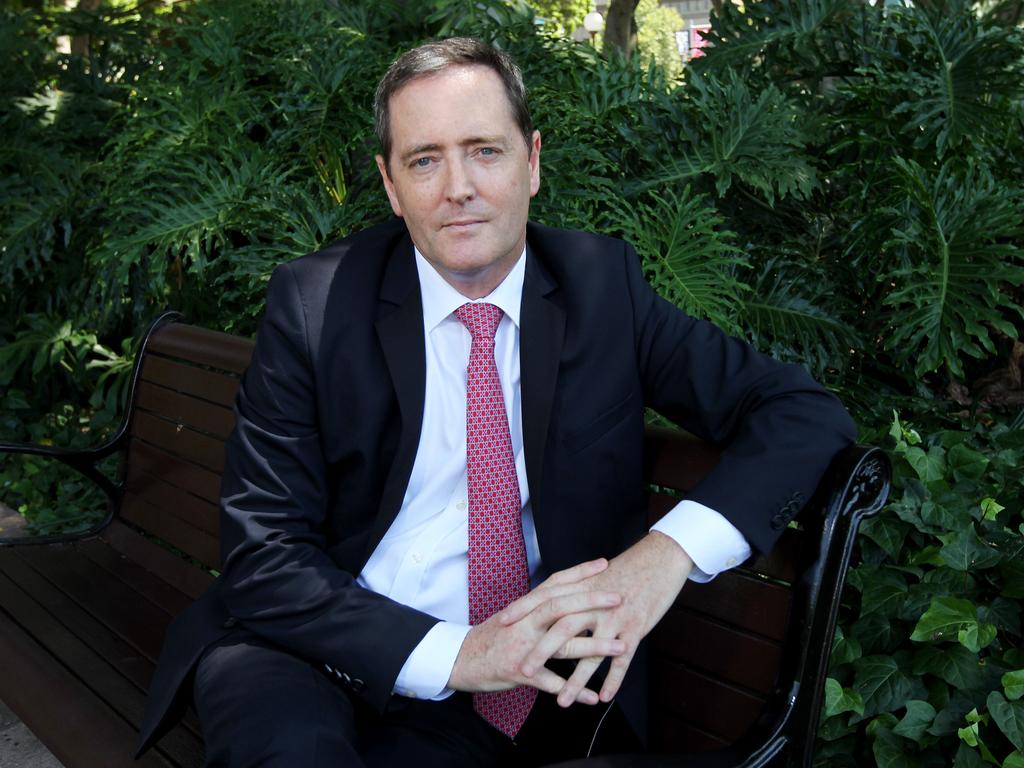
In Australia our private sector largely abandoned creating funds where members have a benefit related salary — so called defined-benefit accounts – in favour of accumulation accounts wherein the employees enjoy the benefits of market rises and take the falls in the chin.
In this context universities are unique in Australia and what happens to both the sharemarket and universities’ overseas student numbers will become a vital national issue given that tertiary education is a key export industry.
Most people joining the Unisuper industry fund actually start with a defined benefit membership when they join. During the next two years have the option of switching to the standard accumulation fund style offering of most Australians.
It requires a deliberate step for a university employee to change, so a vast number of those in university ranks stay with a defined benefit superannuation scheme, where their final lump sum or pension is related to their salary level, not the assets in the fund.
But unlike US and previous Australian corporate defined benefit funds, all of Australia’s universities have made it very clear that they do not guarantee the Unisuper member benefits, so the ability of Unisuper to meet those promised benefits depends on the value of its $25bn fund. But it is helped by a generous university contribution of up to 17 per cent.
As the salaries of university professors, lecturers and others rise so the long-term liability of the fund increases. In a low interest rate environment the returns on fixed interest securities was insufficient, so the fund made an investment choice rare in conventional Australian superannuation: around 85 per cent of its assets would be in equity related investments, led by Australian shares (57 per cent); international shares (13 per cent), property (8 per cent) and infrastructure and private equity (7 per cent).
And in its choice of Australian equities, it made a number of big plays including taking major holdings in Transurban, Sydney Airport, Scentre Group, APA Group and GPT. In the boom these stocks performed brilliantly and helped Unisuper lift its so called “vested benefit index” to around 126 per cent. The vested benefit index measures the capacity of the defined benefit fund to pay out all members’ benefits from existing assets in the theoretical event they were all to leave the fund at the same time.
At the start of 2020, Unisuper fund trustees must have been feeling really happy with their defined benefit position because their high equity strategy had delivered strong backing for the future liabilities.
UniSuper’s chief investment officer John Pearce was called by The Australian Financial Review “Mr 18 per cent” reflecting UniSuper’s 18.4 per cent returns for calendar 2019.
Navigating a crash
Then came the share crash. Calculating the vested benefit index (VBI) is complex, particularly as the actuaries include an expected return, but last week Unisuper’s VBI had fallen to the vicinity of 107 per cent. This week it will have fallen much closer to 100 per cent — where the assets only meet the estimated liability. There is no buffer.
If the market continues to fall and non-listed assets are valued to market then the vested benefit index will fall below 100. Unisuper points out that the long term nature of the member liability means that the fund can ride out big falls in the market. Indeed, during the global financial crisis, the vested benefit index also fell below 100. The fund’s managers are confident in the long term value of their portfolio.
It’s a view that has merit. The danger comes if the vested benefit index is well below 100 and there is an avalanche of people leaving the fund who take their money out on the basis of their entitlement based on salary and not on the basis of the assets in the fund.
That considerably weakens the position of those still in the fund because, in effect, assets that should be used to back their entitlement have been paid out to early leavers.
Given the nature of universities, a big member withdrawal is not likely unless there is a mass exodus of foreign students, requiring big staff cutbacks. During 2020, universities will manage the foreign student position by trimming casuals, reducing building and, if necessary, borrowing and/or calling in reserves.
The 2021 foreign student intake is critical, and if it is down substantially there will need to be significant staff retrenchments in some universities.
The risk to Unisuper is a sustained sharemarket fall accompanied by a big exodus of staff. That perfect storm is not likely in 2020 but no one knows what will happen in 2021.
The federal government has a lot on its plate, but it should extend student visas to lessen the risk of a major exodus of foreign students.
And the trustees should consider not having the accumulation side of the Unisuper funds in the same fund as the defined benefit members.
APRA will need to watch the situation closely, particularly as new young members of the defined benefit fund do not gain anything like the asset crediting of older members which means that younger members are helping those older members which creates an actuarial stew pot.
Footnote: Today’s good news for the superannuation movement: Australia’s largest superannuation fund, AustralianSuper has revalued its non-listed assets and reduced their value by 7.5 per cent. Some of the assets had not increased in value in line with last year’s boom in shares which cushioned the reduction. I have been strongly urging superannuation funds to take such an action to avoid inflated payments as people switch from equities to cash. AustralianSuper’s action paves the way for the rest to follow.







In the US, companies that have guaranteed employee superannuation funds that provide a benefit related to salary and not the value of superannuation assets are petrified by the free fall in the US share market.